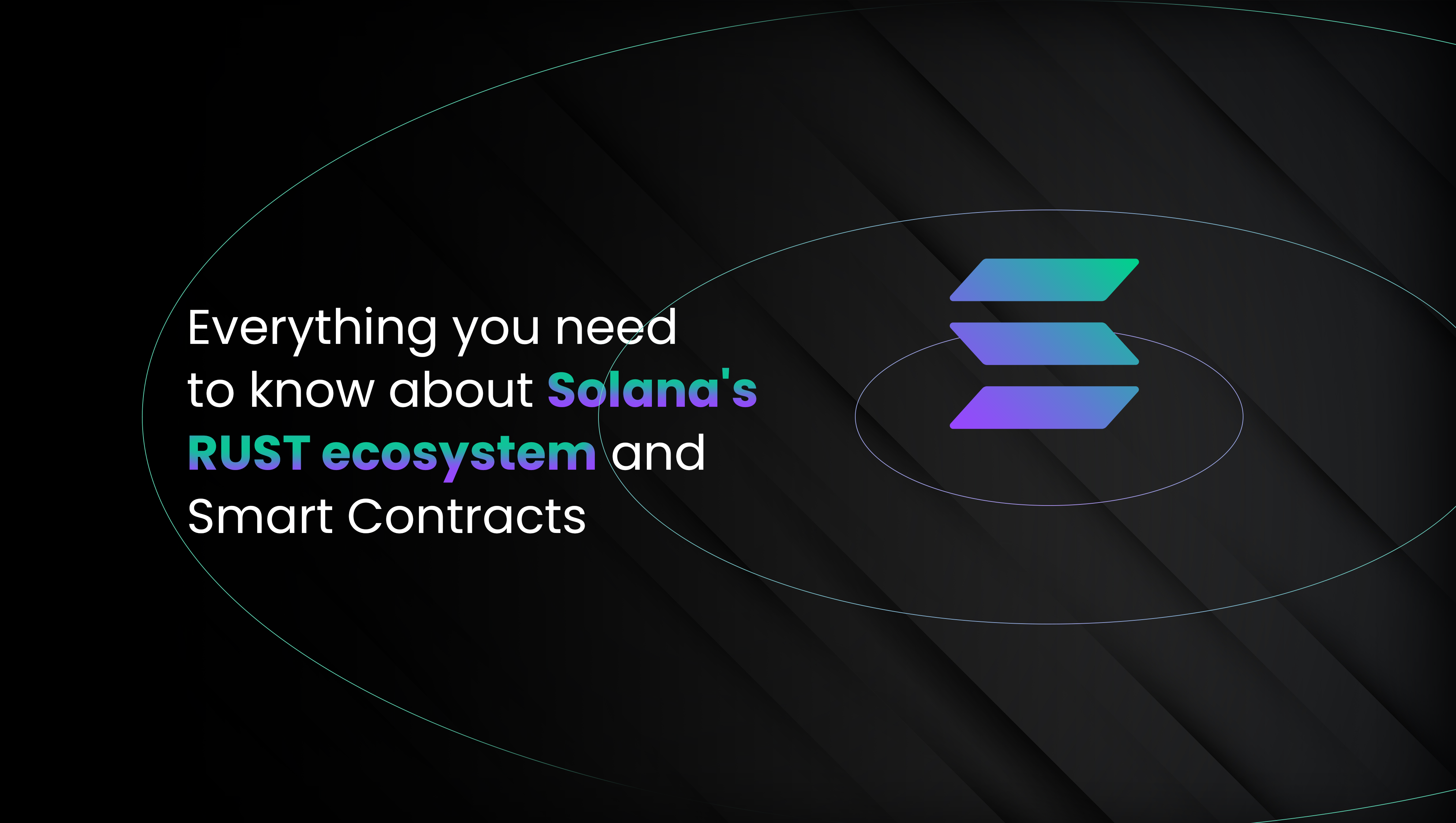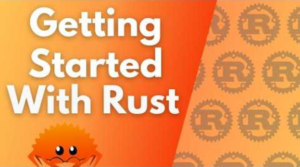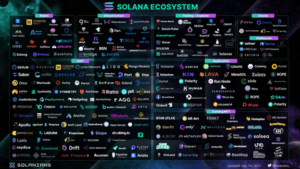Everything you need to know about Solana’s RUST ecosystem and Smart Contracts

Solana’s RUST ecosystem and smart contracts go hand in hand. Rust is a programming language which is used to design and deploy dApps in the Solana ecosystem. Polkadot and Substrate (by Parity Technologies) have also used Rust for building their ecosystems. By using Rust, developers can create decentralized Web3 applications that are very scalable and secure. Time needed for transaction settlement are sub-second.
Smart contracts are programs that are stored on a blockchain. Once programmed, they will self-execute when predetermined conditions are met.

Why use Rust for smart contracts?
Rust is ideal for writing smart contracts because it is type safe, memory safe, and free of undefined behaviors. Most programmers should have at least basic knowledge or understanding of this programming language. Although it is not the easiest language to learn, the learning curve is steep, and it is user-friendly. There are a few more reasons why Rust is a good choice for smart contracts.
- Rust ecosystem — all needed support on the Rust ecosystem is free. New features and functionality are accessible as the language develops.
- Tooling — many tools, like Rust-analyzer, will work immediately, without the need of complicated installation procedures.
- No overhead — the runtime is minimal. Overhead can be memory or bandwidth related.
- Small size — size is important in the blockchain world. Rust provides very compact data structures.
- Fast and High performance — Rust´s performance is far superior then other languages like Python and on par with C++. Rust has an insanely fast runtime, which derives from compiling to an executable and thus injecting a small amount of language runtime. This does not provide a memory manager during the runtime process.
The toolkit that comes with Rust is easy to work with for programmers and includes an integrated test and benchmark runner.
Who is part of Solana’s Rust ecosystem?
Solana’s Rust ecosystem comprises over 500 projects built on Solana. The majority of these dApps are DeFi related, but not all! Projects include NFTs, DeFi, DEXes, Oracles, Financial Protocols, and so on.
Reasons for choosing Solana include scalability, speed, fast and global settlement, or to elevate creators. Solana can handle 50-60.000 transactions per second, to give an idea about their speed.

Some of the projects that run on Solana’s Rust ecosystem include:
- Audius — a music streaming platform that puts power back to creators.
- Star Atlas — a blockchain drive multiplayer metaverse game.
- Raydium — first AMM build on Solana
- Atlas Finance — a DEX that provides the deepest liquidity for swaps on Solana.
- Media Network — a highly scalable, privacy-oriented, community governed CDN.
A bonus that Solana offers is an extended range of video tutorials and courses. They give great insight to developers on how to utilize their Solana -based dApps. Thus, creating a win-win situation for both developers and Solana. The native SOL token made it in to the top 10 of cryptocurrencies. This is not surprising, looking at what Solana has achieved. The proof of stake algorithm made sure SOL also landed in the top 10 of eco-friendly cryptocurrencies.
As a result, Solana’s Rust ecosystem is giving Ethereum a hard time in popularity, and it looks like it is here to stay.
RD Auditors have an experience team of RUST auditors, so reach out to us if you require your smart contracts audited.

